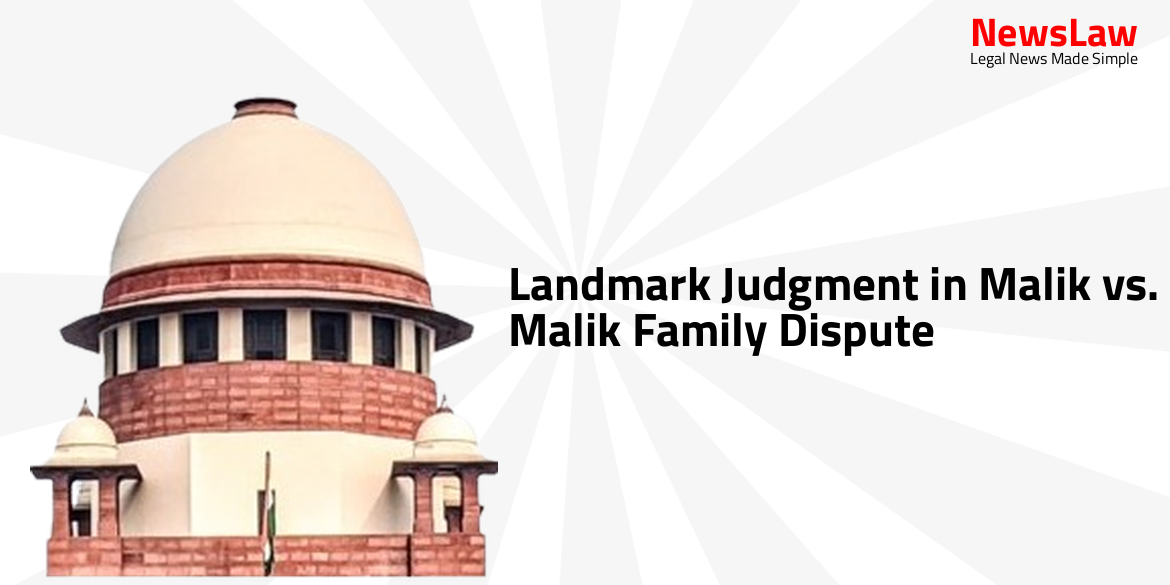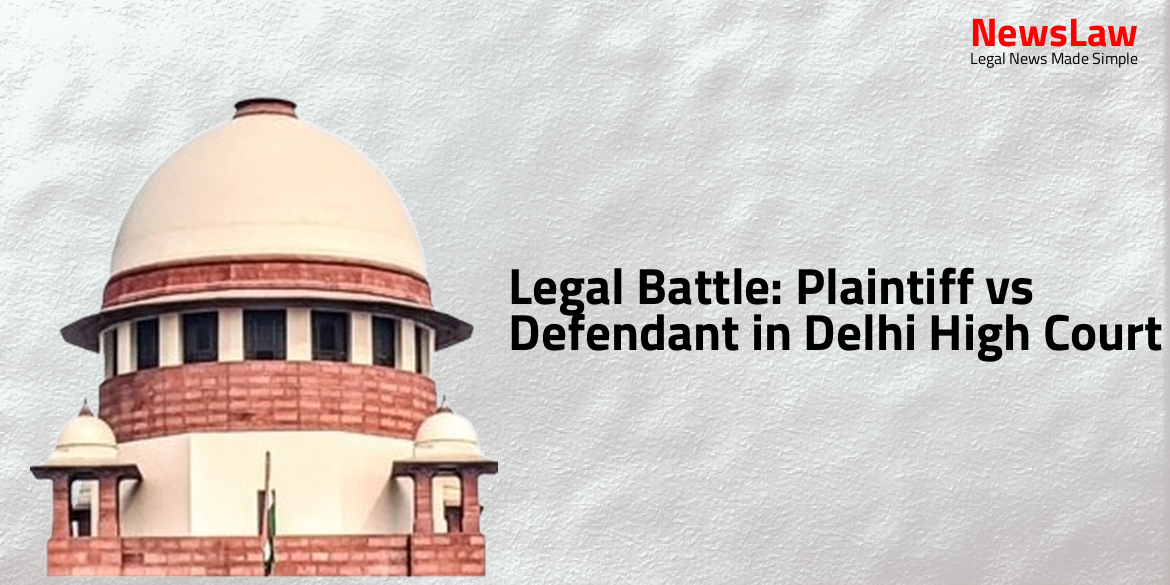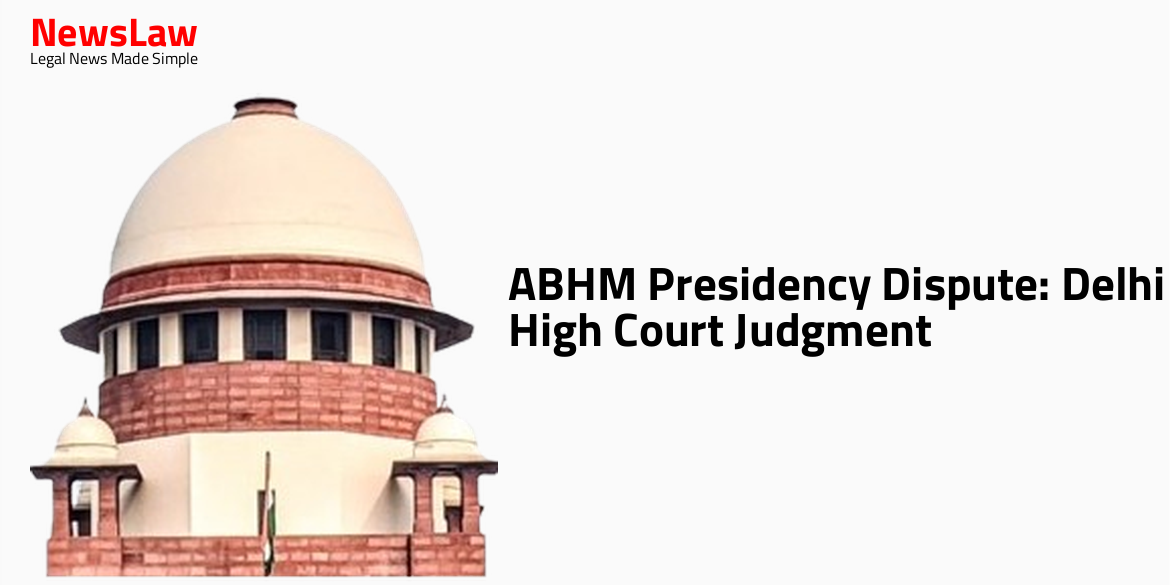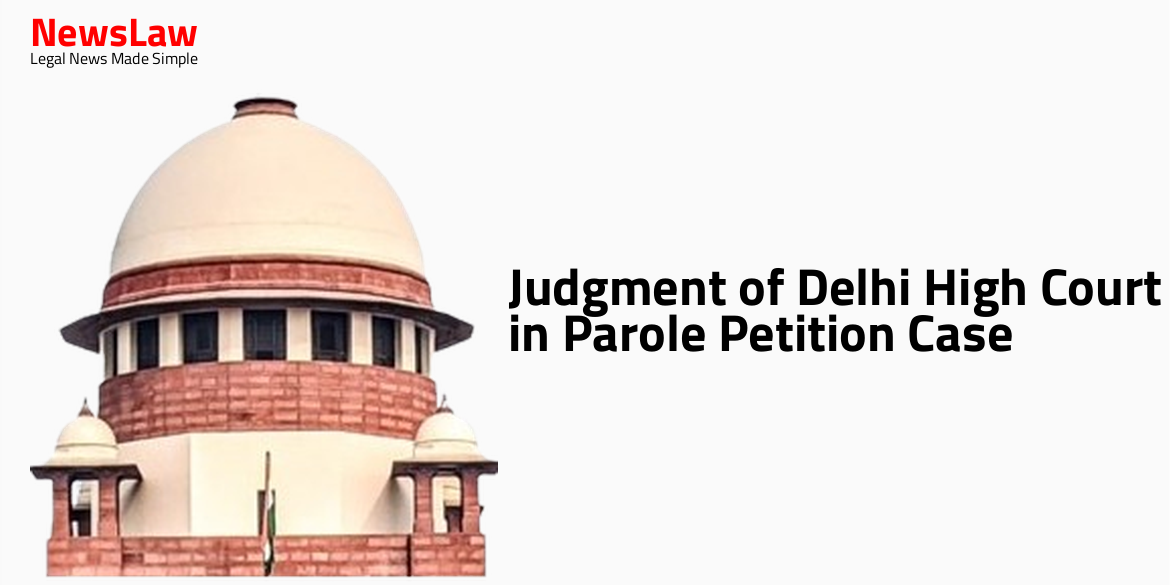In a significant decision, the Delhi High Court has pronounced a landmark judgment in the longstanding family dispute involving the Malik family. The case, titled ‘Malik vs. Malik,’ has witnessed intense legal battles and intricate arguments surrounding property ownership and familial ties. This latest ruling is expected to shed light on key aspects of the dispute and bring much-needed closure to the parties involved.
Facts
- The lawsuit was initiated by Sh. Tarun Chander Malik to recover possession of a property in New Delhi from the defendant, who is his biological elder sister.
- The defendant contested the adoption of Sh. Tarun Chander Malik by Late Sh. Tara Chand Malik, arguing that their father continued to represent himself as the father of Sh. Tarun Chander Malik.
- The defendant mentioned the transfer of valuable equity shares and a property in Karol Bagh to the plaintiff as part of an alleged oral family settlement.
- The relationship between the parties deteriorated, leading to a notice being sent for possession of the property, which the defendants did not vacate.
- Following this, the plaintiff filed a civil suit in 2014 seeking possession and mesne profits of the property.
- The properties listed were shown to be held by an unregistered trust named ‘Tara Chand Malik Charitable Trust.’
- The petitioner challenged the authenticity of Late Sh. Tara Chand Malik’s will and claimed possession of the property through an oral family settlement in 1993.
- The petitioner sought dismissal of the suit and implementation of the oral family settlement.
- The petitioner was appointed in the family firm, Malik & Associates, on a salary-cum-profit basis as per the oral settlement.
- The parties were introduced as licensees to the suit property when their relationship was amicable.
- The petitioner’s application under Section 151 of the CPC to recall the respondent for further cross-examination was dismissed by the learned ADJ.
- The Court mentioned that the finding on adoption would not impact the ongoing controversy until the challenge to the transaction of the Conveyance Deed dated 08.02.2006 was raised.
- The plaintiff, not being a witness or author of the documents in question, was considered not competent to depose on them.
- The Court believed that permitting the recall application would unnecessarily prolong the trial process.
- The respondent’s application under Section 151 of the CPC for closing the defendant’s evidence was disposed of, providing three additional opportunities with costs imposed earlier.
Issue
- Will set up by the plaintiff was granted probate
- Will dated 16.08.1968 and Probate Certificate dated 2nd / 28th August 1969 were unchallenged
- Irrespective of adoption, the above points make determination of adoption irrelevant
Arguments
- The Learned Counsel argued that probate is granted without delving into the specific contents of the Will.
- The Counsel contended that a conveyance deed is irrelevant in establishing the validity of an adoption or determining ownership rights.
- The petitioner has raised a limited plea for the production of documents, which was allowed by the Trial Court.
- The matter of adoption is crucial to resolve the dispute between the parties.
- The petitioner has the right to cross-examine PW-1 to confirm important documents that have come on record.
- The petitioner invoked the jurisdiction of the Court under Article 227 of the Constitution of India for judicial oversight.
- The petitioner argues that the deletion of pivotal issues by the learned ADJ has rendered them defenseless and prejudiced their interests.
- The Probate Court lacks jurisdiction to decide on matters of property ownership or whether the properties in question were ancestral or personal acquisitions of the testator.
- The denial of presenting evidence on certain issues is causing prejudice to the petitioner’s interests and hindering equitable adjudication.
Analysis
- The judge meticulously reviewed the allegations, defences, and evidence presented by each party before determining the precise issues to be addressed in the trial.
- The Will of Smt. Bhagwanti is not in question before the court.
- The issues concerning the adoptive status of Sh. Ram Nath Malik and the familial ties are crucial for the case.
- The court can re-cast issues to better address the dispute between the parties.
- The stage of defining issues helps in structuring the trial proceedings.
- The defence claims oral family settlement and challenges the nature of the property involved.
- The court’s jurisdiction to amend or strike out issues is essential before passing a decree.
- The issue of mis-joinder of necessary parties is deemed irrelevant to this case.
- The framing of issues acts as a roadmap for the trial, guiding arguments and evidence.
- Additional documents were allowed to be brought on record after court’s permission.
- Adjudicating on certain issues was deemed dilatory and a waste of judicial time.
- The petitioner seeks permission to present an additional document during cross-examination.
- The court exercised its power to frame issues under the Code of Civil Procedure.
- The framing of issues refers to the process where the presiding judge formulates specific points or questions based on the pleadings and documents submitted by the parties.
- This process helps to streamline the trial and focus on the key points of contention.
- Will of Smt. Bhagwanti is already probated.
- Consequences of the probate of Will will be considered by the court at the appropriate stage.
- No need for further evidence from the parties on the Will.
- It is not necessary to seek an explanation about the Will from the respondent.
- No infirmity in re-summoning the respondent for cross-examination under Section 151 CPC.
- Lack of explanation on the relevancy of the Will to be put to the respondent by the petitioner.
Decision
- The judgments relied upon by the parties are decided on their own facts and are distinguishable from the facts of the present case.
- Issues nos. 4 & 5, having been deleted by the Trial Court, have been set aside.
- Consequently, the petition along with pending application is disposed of.
Case Title: RITU KUMAR Vs. TARUN CHANDER MALIK (ADOPTED) & ANR. (2024:DHC:3896)
Case Number: CM(M)-1926/2023



